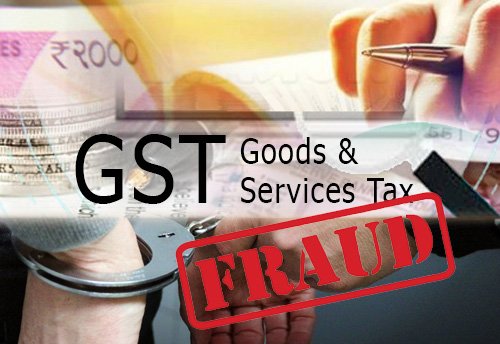The CGST Faridabad Commissionerate has busted a meticulously planned ₹64.25 crore Input Tax Credit (ITC) fraud involving two individuals — Sanket Mittal and Naveen Tayal — who have been arrested and sent to 14-day judicial custody by the Faridabad District Court. The arrests follow a complex investigation into fictitious B2B transactions fraudulently layered over actual Business-to-Consumer (B2C) mobile phone sales on platforms like Amazon, Flipkart, and Appario.
The fraud was unearthed with the assistance of data analytics tools and inter-jurisdictional intelligence, making it one of the more sophisticated GST scams exposed in recent months.
Shell Firms and Forged Registrations: Fraud Rooted in Deception
Investigators found that two shell entities — Balaji Mobile Addition and Monit Enterprises — were the primary vehicles of fraud. These companies were deceptively registered using forged documents, with the names of the accused’s grandmother and domestic help being used to mask the real operators.
The GST registration process was manipulated using fabricated electricity bills, which were later confirmed to be non-genuine by Dakshin Haryana Bijli Vitran Nigam, the local power distribution company.
Modus Operandi: iPhone IMEI Numbers Misused to Simulate Fake Procurement
The cornerstone of the scam was the unauthorized use of IMEI (International Mobile Equipment Identity) numbers of Apple iPhones sold via legitimate e-commerce platforms. These IMEIs, procured through unauthorized channels, were falsely recorded in internal books to simulate non-existent purchases, thus enabling the firms to claim fraudulent ITC.
Apple India confirmed that the devices had been sold directly to end consumers (B2C), not to businesses. This nullified the claim that the accused firms had procured these goods through legitimate supply chains, exposing the falsification of GST invoices.

Fake E-Way Bills, Invalid Vehicle Details, and GST Return Discrepancies
Further scrutiny of E-Way Bills associated with these transactions uncovered glaring inconsistencies. For instance:
-
Goods worth ₹5.41 crore were allegedly transported via Haryana Roadways buses, a clear deviation from legal cargo movement norms.
-
Vehicle numbers used in transportation claims were either invalid, non-commercial, or untraceable.
Additionally, GSTR-2A reconciliations and ADVAIT system reports showed zero correlation at L4 to L6 supplier levels. There were no records of purchases to justify the ITC claims, reaffirming that no actual supply of goods had occurred.
Arrests, Legal Representation, and Broader Implications
Both Sanket Mittal and Naveen Tayal had been evading arrest, frequently changing locations and staying off-grid. They were finally apprehended after a targeted surveillance operation. The case is being prosecuted by Shri Harpreet Singh, Senior Standing Counsel, who highlighted the organized nature of the fraud during court proceedings.
Authorities suggest that this bust is indicative of a broader trend in digital GST frauds, where cybercriminals exploit e-commerce data loopholes, B2C opacity, and lack of robust document verification.
A Warning and a Wake-Up Call
Officials have reiterated that the government’s ongoing campaign against fake invoicing and circular trading is now leveraging advanced analytics and inter-agency coordination. The Faridabad ITC fraud underscores the importance of tightening the GST registration process, validating vendor authenticity, and implementing real-time reconciliation to prevent similar scams.
The investigation is ongoing, with additional arrests and tax recovery actions expected in the coming weeks.



